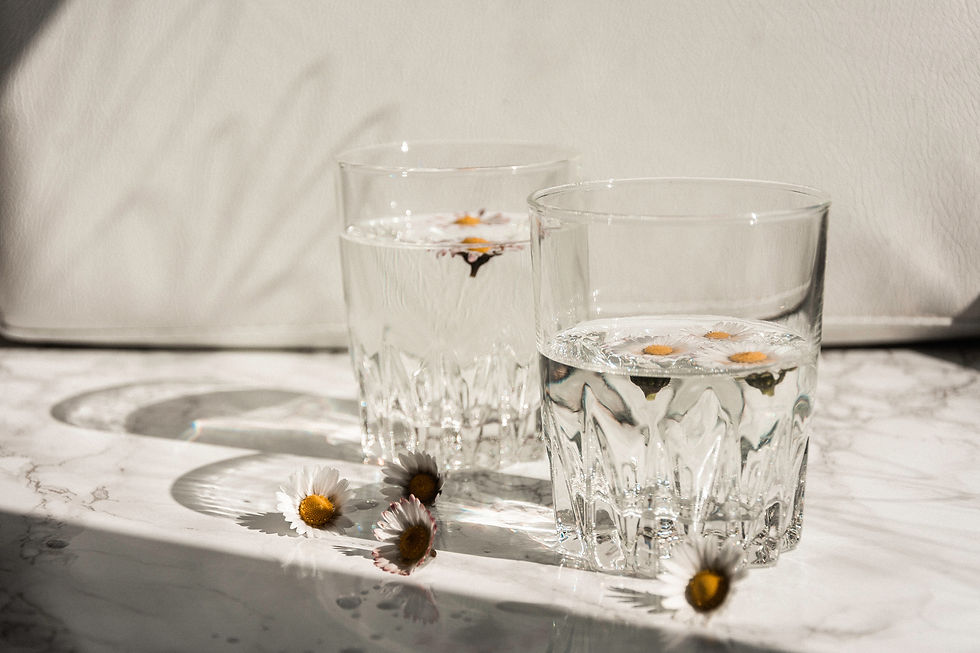Why Proper Hydration Is Crucial for Good Health
- Zillah Smart
- Jul 19, 2025
- 2 min read

We often talk about food as fuel, but water is our life source. As a Nutritional Therapist, I see time and again how something as simple as staying well hydrated can make a powerful difference to energy, mood, digestion, and even chronic health issues. Yet hydration is one of the most overlooked foundations of wellbeing.
Our bodies are around 60% water. Every single cell, tissue, and organ relies on water to function—whether it’s flushing out toxins, regulating temperature, absorbing nutrients, or keeping joints cushioned. Even mild dehydration (as little as 1–2% loss of body weight) can lead to symptoms like fatigue, brain fog, headaches, constipation, and dry skin. Over time, poor hydration can impact kidney function, blood pressure, and metabolic health.
So why do so many of us struggle to drink enough?
In our busy lives, it's easy to confuse thirst for hunger, or rely too heavily on caffeine and fizzy drinks, which can be dehydrating. Many of my clients tell me they simply forget to drink, or they don’t enjoy plain water. Sound familiar?
The good news is that improving hydration doesn’t have to mean glugging down litres of water a day. With a few simple changes, you can build better habits that support your health from the inside out.
Here are my top tips to increase hydration:
1. Start your day with water. After 7–8 hours of sleep, your body is naturally dehydrated. Begin each morning with a large glass of water—add a slice of lemon for flavour and a gentle detoxifying boost.
2. Carry a reusable water bottle. Having water on hand makes a huge difference. Choose a bottle you like (glass or BPA-free plastic) and aim to refill it throughout the day. Set a reminder on your phone if needed.
3. Eat your water. Many fruits and vegetables have high water content. Think cucumber, watermelon, celery, berries, lettuce, and oranges. These foods hydrate and provide valuable nutrients and fibre.
4. Herbal teas count too. If you’re not a fan of cold water, try naturally caffeine-free herbal teas like peppermint, rooibos, or chamomile. These hydrate and soothe, especially in colder months.
5. Limit dehydrating drinks. Alcohol, coffee, and sugary soft drinks can all contribute to fluid loss. You don’t have to cut them out completely, but try to balance them with extra water.
6. Flavour naturally. If plain water feels boring, infuse it with fresh mint, citrus, cucumber, or berries. Try making a big jug and keeping it in the fridge for easy sipping.
Listen to your body
Thirst is often a late sign of dehydration. Pay attention to dry lips, tiredness, irritability, dark urine, or headaches—your body is asking for more fluid. As a general guide, aim for around 1.5–2 litres of water daily, more if you’re exercising or it’s hot outside.
Final thoughts
Hydration is one of the simplest yet most powerful ways you can support your body every single day. It affects everything—from your skin to your cells, your energy to your immunity. If there’s one habit I encourage every client to prioritise, it’s this: drink more water.
Small steps, repeated daily, lead to lasting change. So take a sip now—you’re already on your way.
.png)




Comments